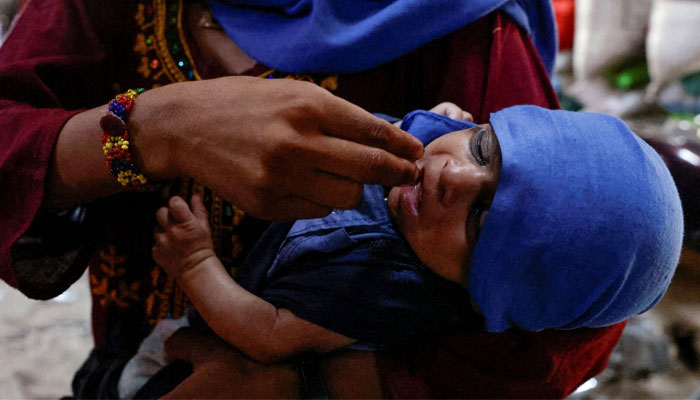UNICEF urges action as rising heat threatens children's health, well-being
Almost 0.5bn children live in areas that see double the number of "extremely hot days" as their grandparents, says report
August 15, 2024

The United Nations International Children's Emergency Fund (UNICEF) on Wednesday urged governments around the world to "act now" to get rising global temperatures under control as they pose significant threats to the health and well-being of children.
In its new report, "A Threat to Progress", the United Nations' body highlighted that children are more at risk as "days with temperatures higher than 95°F" become "increasingly common".
"Almost half a billion children live in areas experiencing at least double the number of extremely hot days as their grandparents — many without the infrastructure or services to endure it," the report said.
"Children are not little adults," warned UNICEF Executive Director Catherine Russell. "Young bodies heat up faster, and cool down more slowly. Extreme heat is especially risky for babies, due to their faster heart rate, so rising temperatures are even more alarming for children."
According to the Institute of Health Metrics and Evaluation, in 2021, high temperatures led to approximately 442,000 deaths, including 45,000 children among whom 31,000 were under the age of five.
Additionally, UNICEF highlighted that excess levels of heat stress contribute to child malnutrition and heat-related non-communicable diseases (like malaria and dengue).
It may also threaten food and water security, damage infrastructure, and disrupt services for children.
The analysis also showed that while extreme heat is increasing worldwide, children are exposed to more severe, longer and frequent heat waves which may impact their brain development and hamper learning.
What is UNICEF doing to beat extreme heat?
In the coming months, all Member State Parties to the Paris Agreement, a legally binding international treaty on climate change, is set to submit new national climate plans that will set the course of climate action for a decade, the report said.
UNICEF has called on global leaders, governments and private entities to:
- Reduce emissions and urgently fulfill ambitious international sustainability and climate change agreements.
- Protect children's lives, health and well-being and the resilience of their communities by adapting essential services to a changing climate, more frequent disasters and a degrading environment.
- Empower every child with developmental opportunities, education and skills that contribute to a better environment.
"Governments must act to get rising temperatures under control, and there is a unique opportunity to do that right now," Russell said.
"As governments are currently drafting their national climate action plans, they can do so with the ambition and knowledge that today's children and future generations will have to live in the world they live behind."









